General
Mak signs Agreement with CIVIS-An Alliance of 10 European Universities
Published
4 years agoon
By
Mak Editor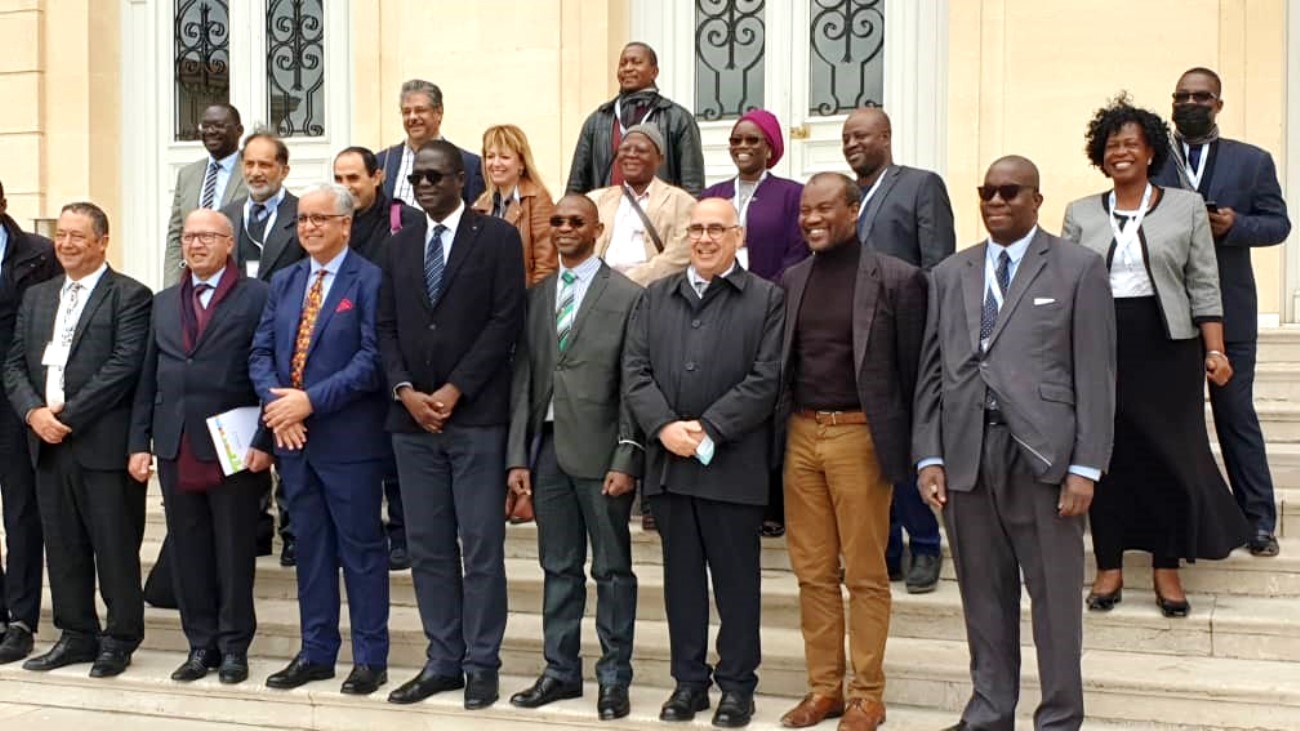
Introduction
The Deputy Vice Chancellor (Academic Affairs), Associate Prof. Umar Kakumba, together with the Deputy Director Directorate of Research and Graduate Training (DRGT), Associate Prof. Robert Wamala and the International Relations Officer, Ms Martha Muwanguzi attended an event , New Horizons for a European –African Partnership at Aix-Marseille University, France. The event was on the invitation of the Vice –President of International Relations of Aix-Marseille University. Held from 8th to 12th March, 2022, the event was organized by CIVIS ; a European University Alliance – and punctuated by conferences and workshops with a focus on importance of the Alliance in strengthening Europe-Africa partnerships.
The Opening ceremony was held in the Amphi Gastaut. the Main Hall of Aix Marseille University. In his welcoming remarks, the Rector Aix Marseille University, Prof Eric Berton was delighted to receive participants especially those from Africa. CIVIS wants to create socially justifiable partnerships and Africa is an essential part of the Alliance with the European universities.
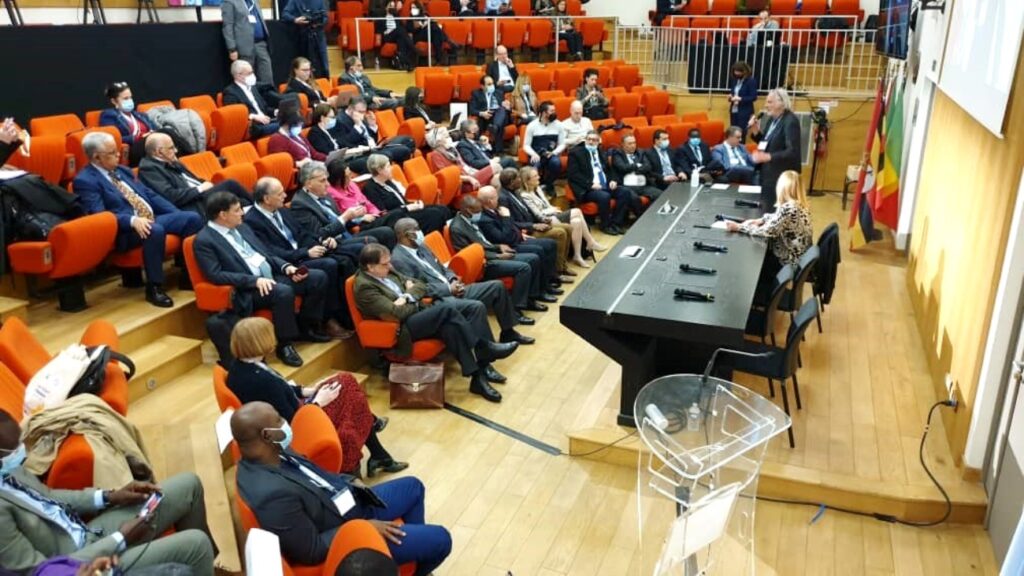
The Director of Strategic Projects and Networks at Aix Marseille, Ms. Camille de Garidel-Thoron introduced the participants to CIVIS. This was followed by another presentation by the Coordinator, CIVIS African and Mediterranean partnerships, University of Tübingen, Germany, Dr Christian Möllman.
Background to CIVIS-A European Civic University
In his remarks, the Coordinator explained that CIVIS is a European Civic University formed by the alliance of ten leading research higher education institutions across Europe namely: Aix-Marseille Université (France); Universite of Bucharest (Romania); Sapienza Universitá di Roma (Italy); Stockholm University (Sweden); Université libre de Bruxelles (Belgium); Universidad Autónoma de Madrid (Spain), Eberhard Karls Universitӓt Tubingen (Germany), University of Glasgow (United Kingdom); The Paris Lodron University of Salzburg (Austria) and the National and Kapodistrian University of Athens (Greece).
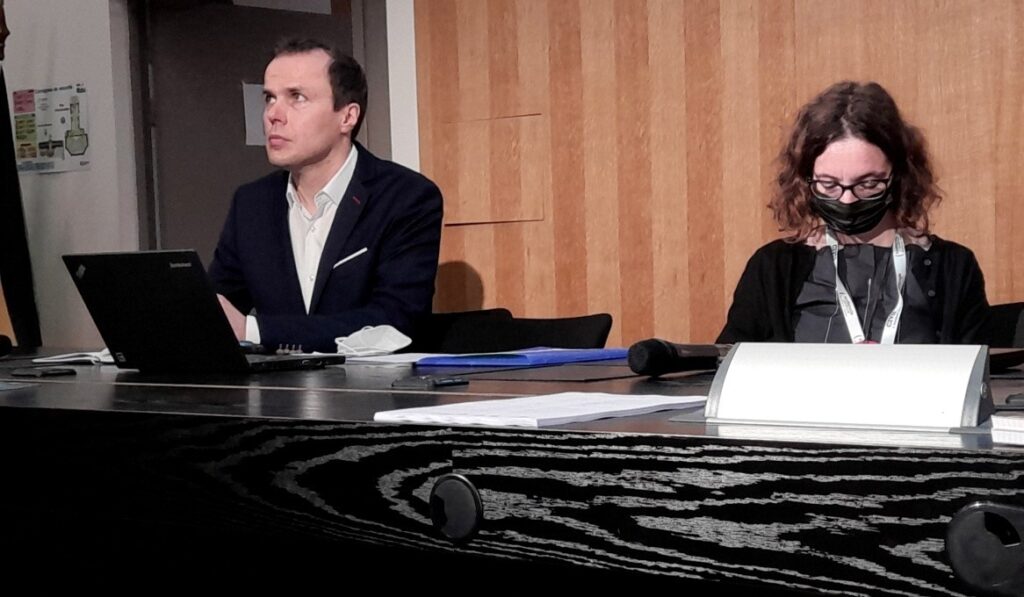
The Alliance brings together a community of more than 470,000 students and 58,000 staff members including 35,000 academics and researchers. The CIVIS member universities actively contribute to the social, cultural and economic activities of the urban environments they are situated in and also promote inclusiveness, gender equality, non-discrimination and social equity. CIVIS strengthens interactions, knowledge production and skills amongst its members and with citizens, the communities, businesses, social and cultural associations. These interactions help reduce inequalities, increase access to quality training and opportunities for students and staff.
CIVIS is governed by a Board of Rectors, headed by a President and two Vice Presidents who make decisions. It has a Steering Committee headed by the President and a CIVIS Administration with a Project Team. There are three councils namely, Global Participant Council, Global Student Council and a Global Consultative Council.
Alliance between CIVIS and African Universities
Humanity now faces global problems such as climatic change, diseases and epidemics, unplanned cities and settlements, to mention but a few. It is important to note that these challenges cut across borders and continents. Therefore, collaboration and partnerships with African Higher Education Institutions (HEI) would be crucial and important to establish. It is on this basis that particular African universities were invited by CIVIS to participate in the events with the aim of extending the partnership to the African continent. Six universities were invited: (i) Makerere University (Uganda); (ii) University of Sfax (Tunisia); (iii) University of the Witwatersrand (South Africa); (iv) Université Hassan II de Casablanca (Morocco); (v) Universidade Eduardo Mondlane (Mozambique), and (vi) Université Cheikh Anta Diop de Dakar (Senegal).
The collaboration and partnership broadens the network for student and staff mobilities as well as study visits. Further, it also supports equitable research partnerships in higher education agreed upon in the European Union and African Union Innovation Agenda which opens up new channels for South-South cooperation. University partnerships have also become powerful vehicles for promoting civic and democratic engagement as well as international economic development.
Presentation by Makerere University
The Vice Chancellors in the African countries presented information about their universities, including identification of areas where they could work together with the European counterparts in the Alliance.
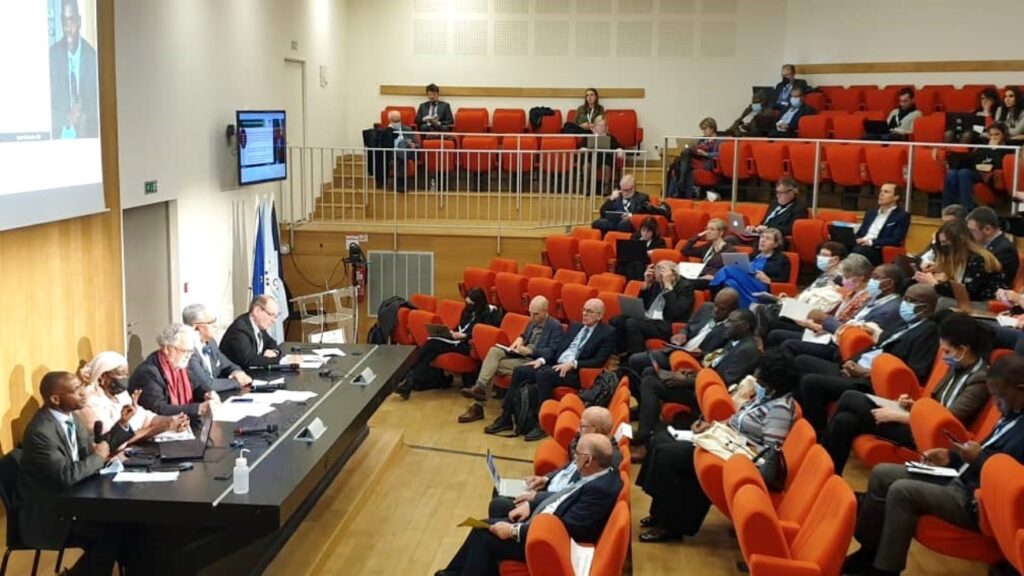
In his remarks, the Deputy Vice Chancellor (Academic Affairs), Associate Prof. Umar Kakumba thanked the organizers of the event and the invitation extended to Makerere University in particular. He supported the idea of a European-African Universities partnership and believes that it will contribute to the Africa Agenda 2063 and its attendant action plan. The aim should be to support research collaboration in selected fields among Africa and the member universities and to strengthen the research infrastructure at the member universities such as Science laboratory and training equipment; research in agricultural value addition and food security; infrastructure planning and management; research in public health and infectious diseases management as well as research in refugee and migration issues.
Prof. Kakumba emphasized that signing an MoU is a great step in the right direction. This should follow a statement of clear roles and responsibilities, and mutual benefits. Furthermore;
- There is need to plan big but start small.
- There should be options of choosing a low cost, simple activity with high impact such as seminars, workshops, regular partnership meetings, student/staff exchange to give partner institutions a chance to learn about each other’s systems, processes and stakeholders.
- There is need to plan and understand the individual institution’s responsibilities and obligations in the partnership and set up timelines, deliverables and milestones.
- It is crucial to establish exactly who will be involved, how communication should happen and what decisions need to be taken in the short term.
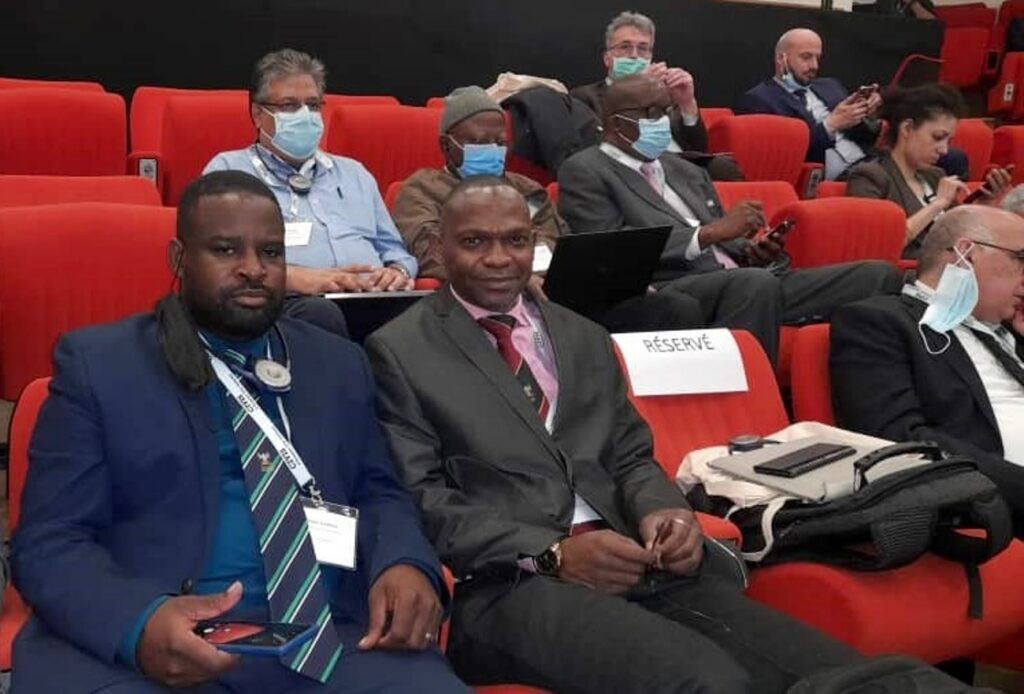
Following presentations by all the six African Universities, a discussion was made to explore common grounds on how the European Alliance can serve African partners. In his remarks, Associate Prof. Robert Wamala emphasized the need to document the roles and expectations of the African in the Alliance. In his remarks, Robert Wamala noted that Universities in the CIVIS Alliance were at a higher advantage in regards to research capacity when compared to the African counterparts. Therefore, the need to build an equal partnership in an unequal world needed to be prioritized.
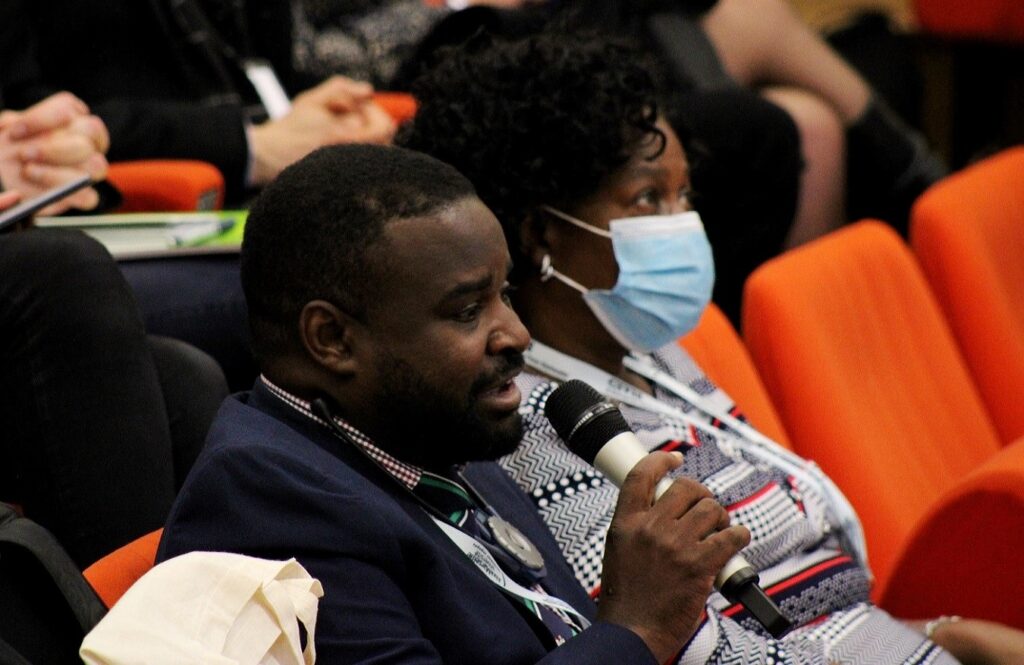
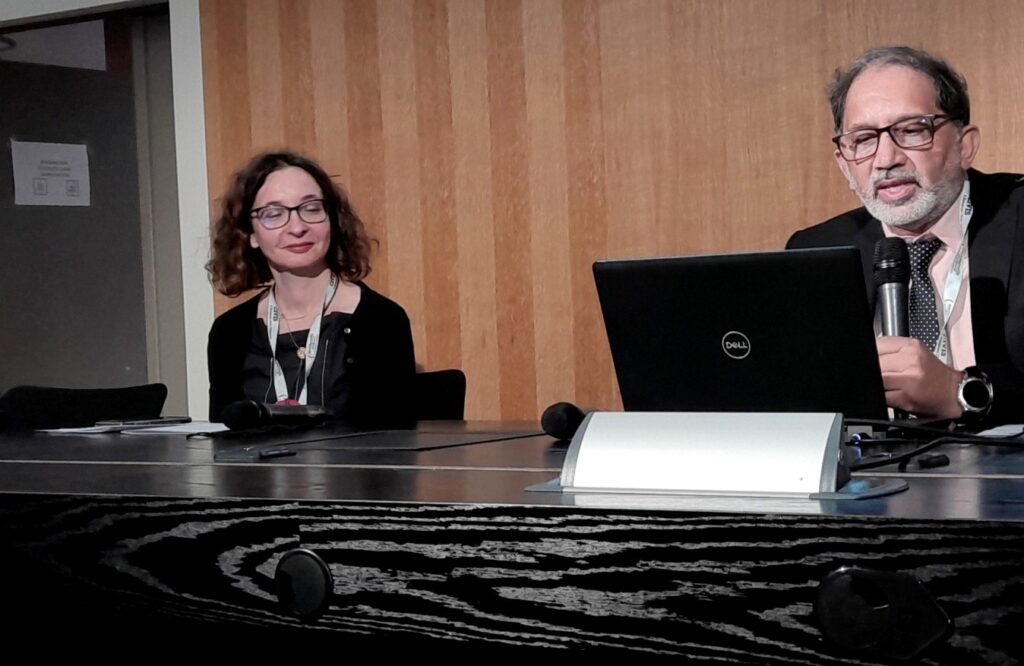
Expectation(s) of the Collaboration
Collaboration in CIVIS is organized around hubs in five multidisciplinary research areas linked to CIVIS values where multiculturalism and multilingualism are encouraged and emphasized , working together to address UN Sustainable Development Goals. The four Hub Chairs made presentations of respective hubs: (i) Hub One focuses on Climate, Environment and Energy; (ii) Hub Two focuses on Society, Culture and Heritage; (iii) Hub Three focuses on Health; and (iv) Hub Four focuses on Cities, Territories and Mobilities. Hub Five is yet to be established. Activities in the Hubs include webinars, workshops, summer schools, field camps and course offerings. Each Hub must have at least three or more CIVIS universities.
All participating universities agreed that there was need to move from unilateral projects to multilateral partnerships and provide input into AU-EU Innovation Agenda and establish advanced study centres. It was noted that in order to have successful international partnerships, equity, trust, transparency and mutual respect for the needs and interests of partners were key to their success and sustainability.
Research collaboration is very important with European universities. The funding received is normally from Erasmus+ but there is need to move further to funding agencies that provide support for education such as CIVIS. It was further noted that mobility and exchanges of students and staff is there to stay and cannot replace human interaction, and other forms of education need to be developed and blended with virtual mobility. Furthermore, what is good for our students is good for our partnerships“Together we are stronger”. In this partnership, there is need to have a joint practical collaboration by “Building an equal partnership in an unequal world”
Signing of Agreements
At the end of the three- day conference, the Vice Chancellors of the African universities signed a Strategic Partnership Agreement with CIVIS (A European Civic University Alliance) to lay a foundation for collaboration in research and education focusing on societal challenges, mobilities and institutional development.
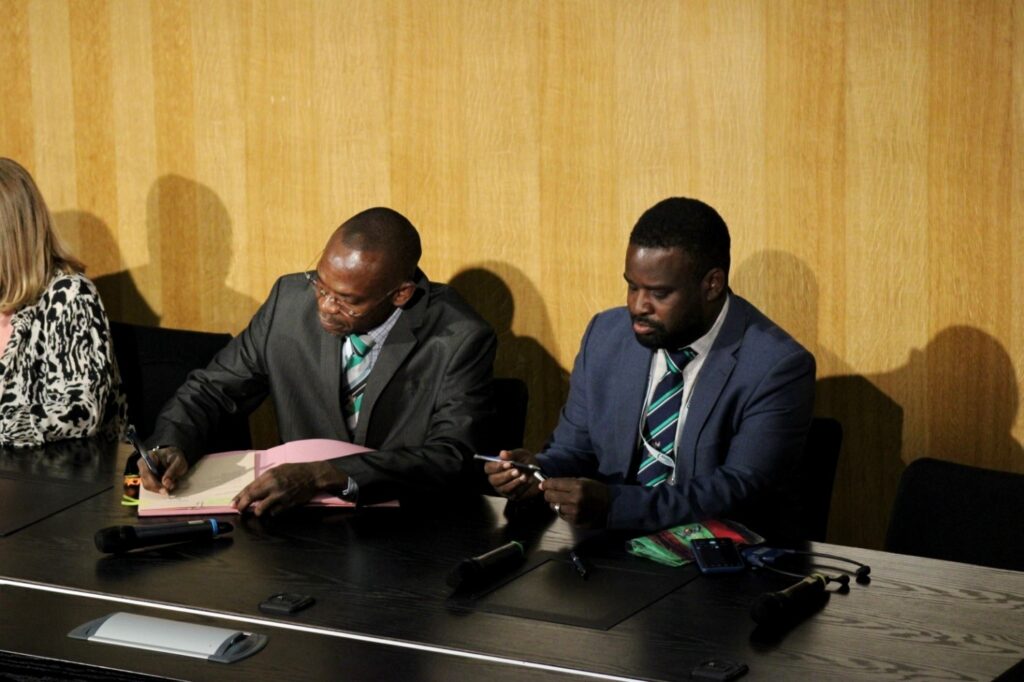
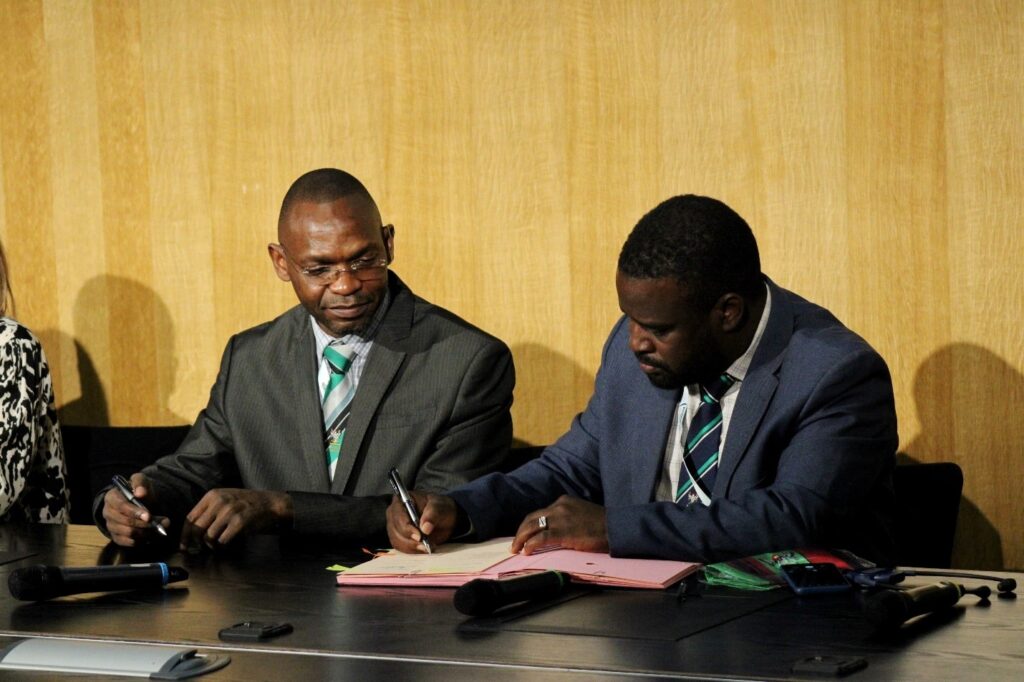
Expectations of Makerere University
Similar to the rest of the African Universities, Associate Prof. Umar Kakumba presented the expectations of Makerere University from the Alliance. These included, but were not limited to the following:
- Potential for staff and student mobility within member universities in the Alliance
- Development of joint degree programs around the hub themes
- Mobilization of international funding for research
- Cross disciplinary activities including workshops, seminars and Conferences
- Improving research infrastructure in partner universities in the Alliance
Photo Gallery
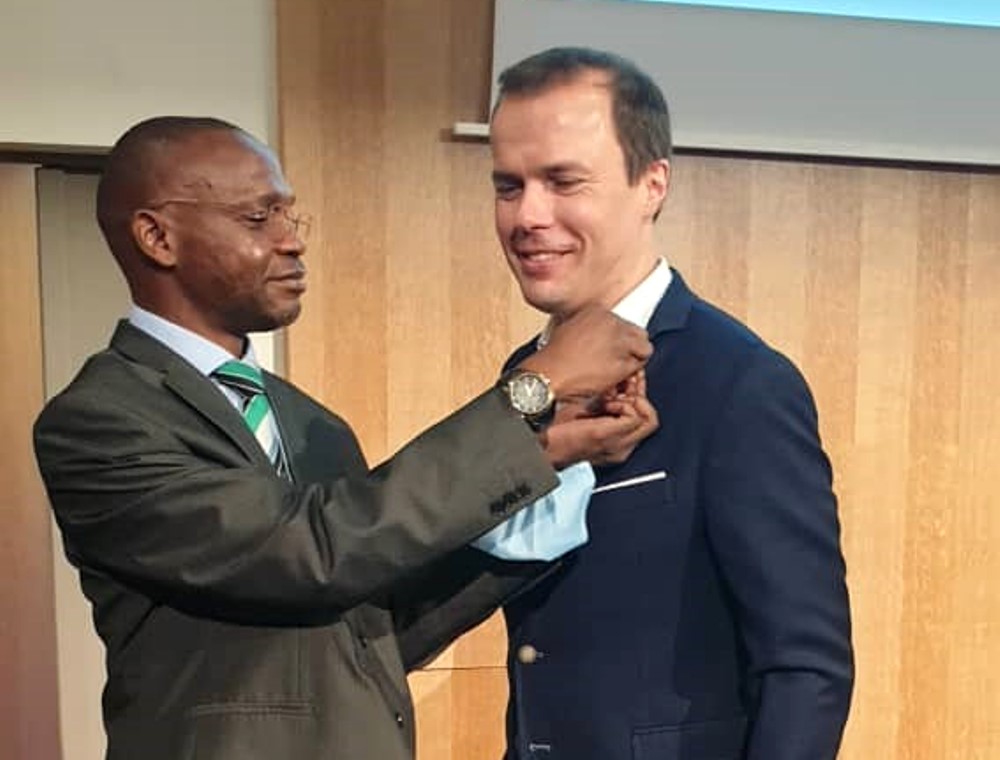
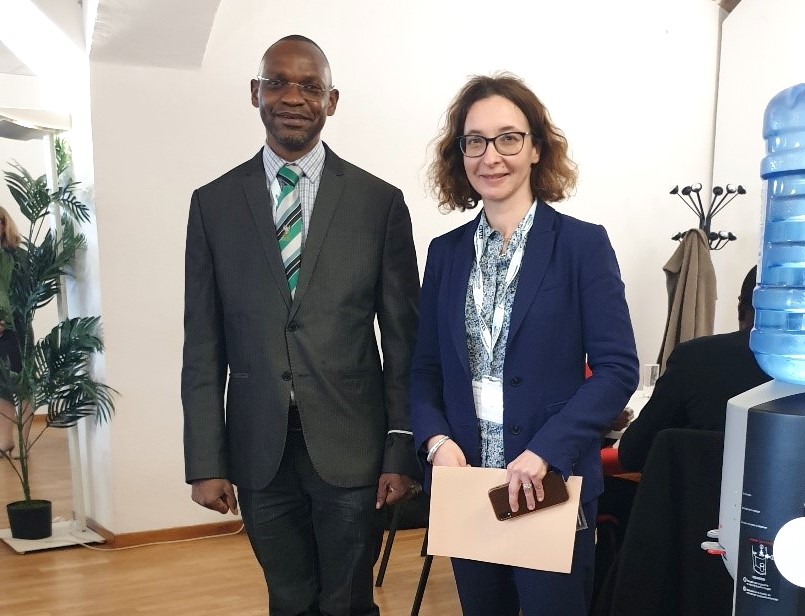
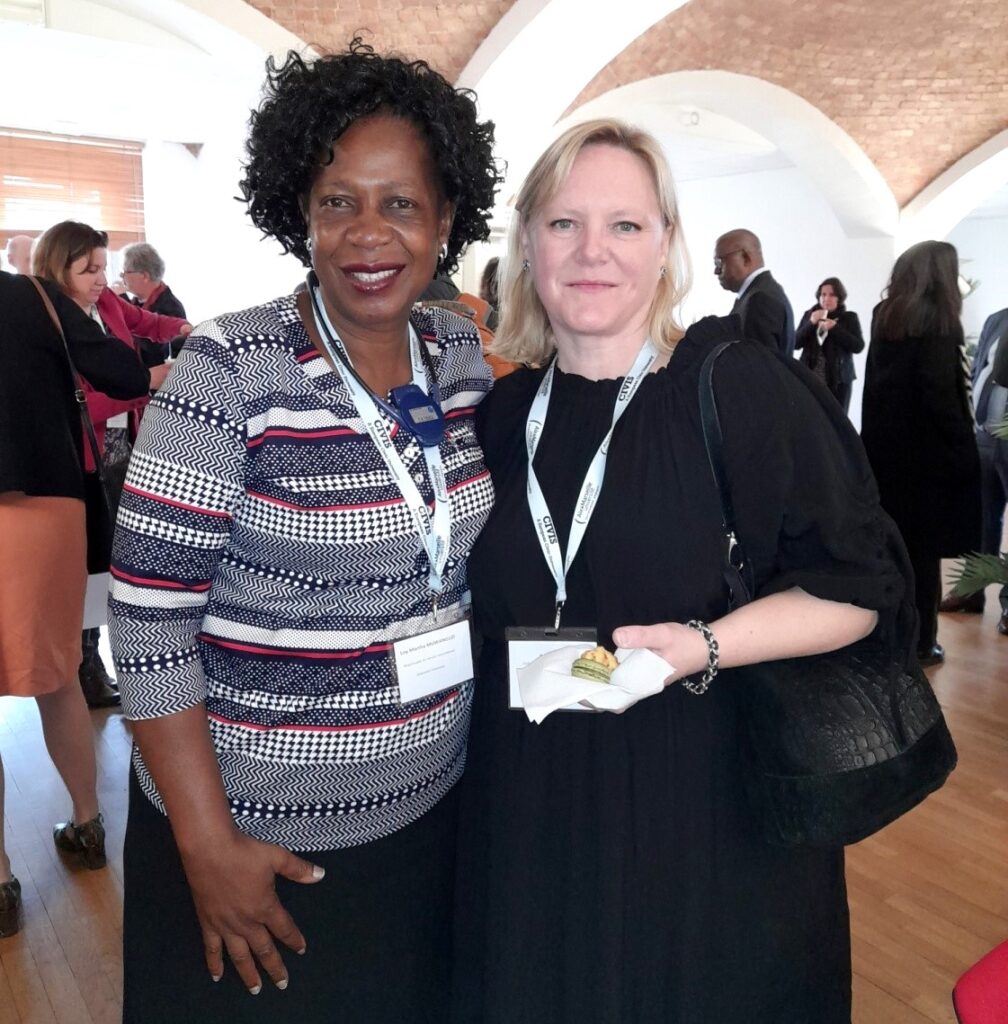
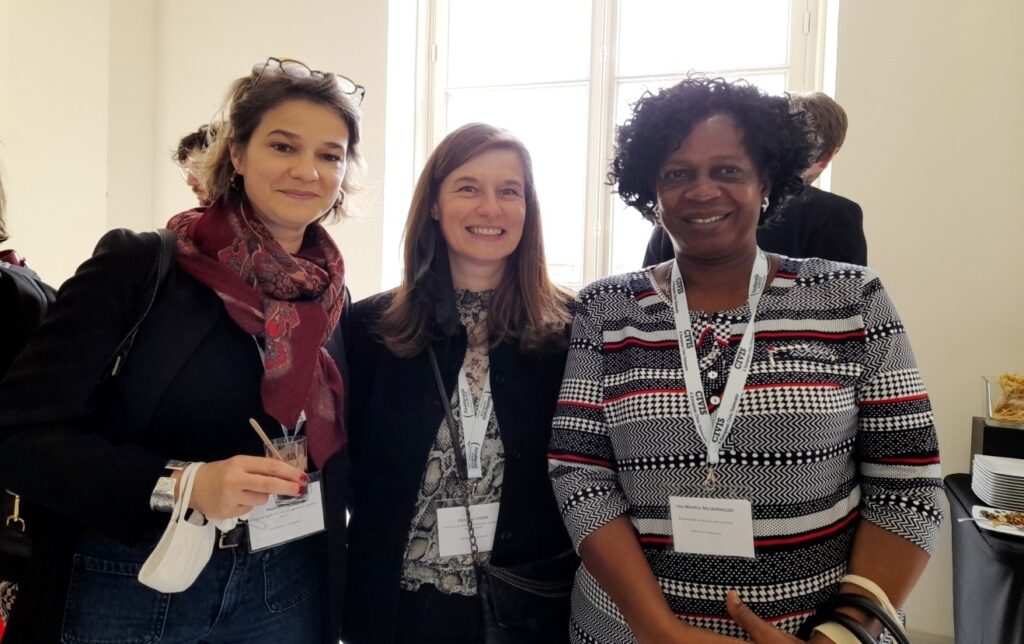
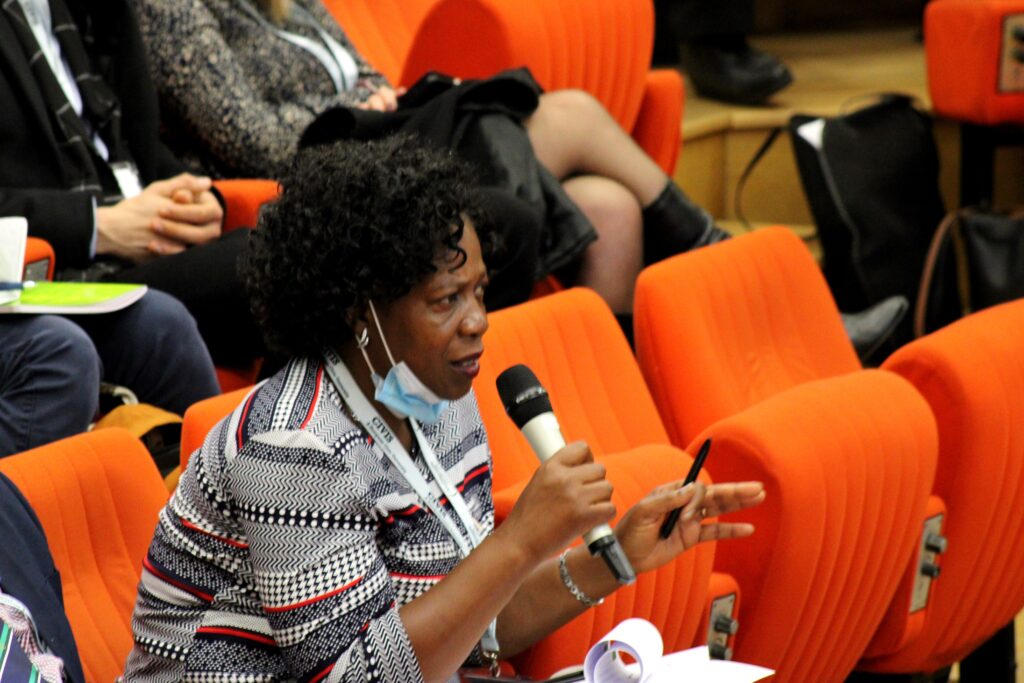
Compiled by Ms. Martha Muwanguzi, International Officer, Makerere University
You may like
-
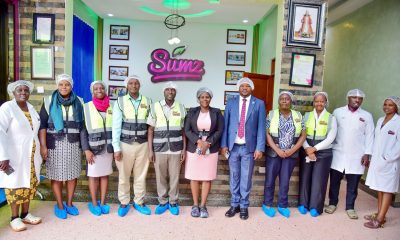

Makerere Explores Strategic Industry Partnership with Psalms Food Industries to Strengthen Manufacturing Innovation
-


Makerere Graduation Underscores Investment in Africa’s Public Health Capacity
-


Botswana Delegation Visits Makerere’s Public Investment Management Centre to Study Sustainable Training Model
-
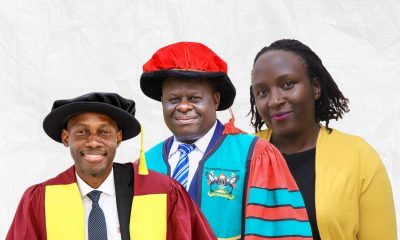

Three MakSPH Faculty Honoured with Makerere University Research Excellence Awards 2026
-


Makerere University commemorates 13 transformative years of partnership with Mastercard Foundation
-


CAES Presents Overall Best Performing Student in the Sciences & a Record 28 PhDs at the 76th Graduation Ceremony
General
Makerere Explores Strategic Industry Partnership with Psalms Food Industries to Strengthen Manufacturing Innovation
Published
11 hours agoon
March 4, 2026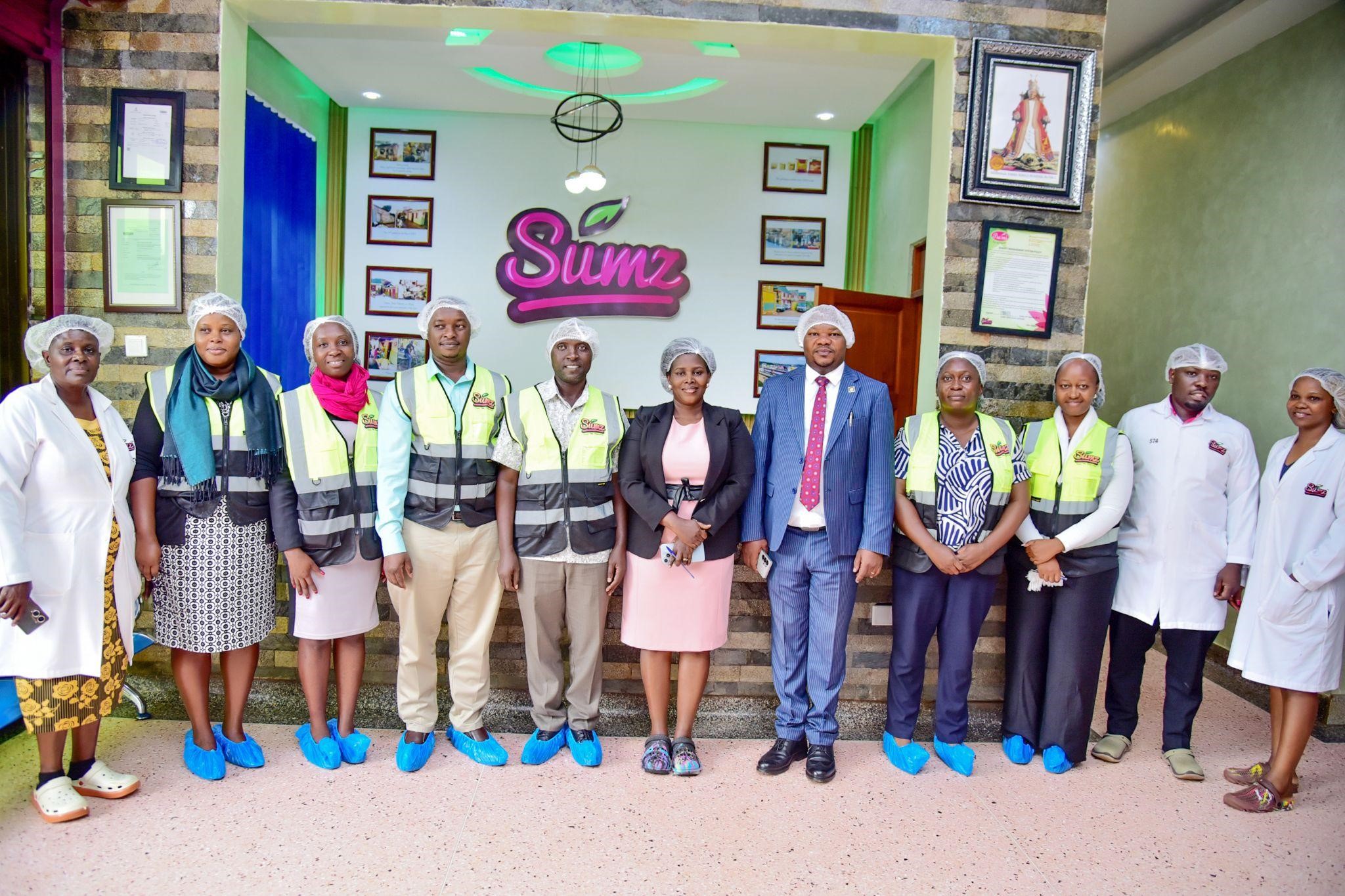
On 2nd March, 2026, representatives from the Advancement Office, the College of Business and Management Sciences and the University Innovation Pod visited Psalms Food Industries to discuss a prospective partnership aimed at strengthening university–industry collaboration in manufacturing, research, innovation, and skills development.
Psalms Food Industries, a homegrown snacks innovation and manufacturing company, operates three major brands, namely, Sumz, Afrikan Harvest and Krunchables, which have grown to a range of 37 products and target the introduction of five new products annually. The company distributes products across Kenya, Rwanda, the Democratic Republic of Congo, South Sudan, and, recently, Tanzania. As a labour of love, the idea of producing snacks was born during the honeymoon of Mr and Mrs Ngabirano, who now run Psalms Food Industries side by side.
Dr. Denis Ngabirano, CEO and Co-Founder of Psalms Food Industries, during the meeting, described the company as “a snacks innovation house, with all our products developed in-house.” He noted.
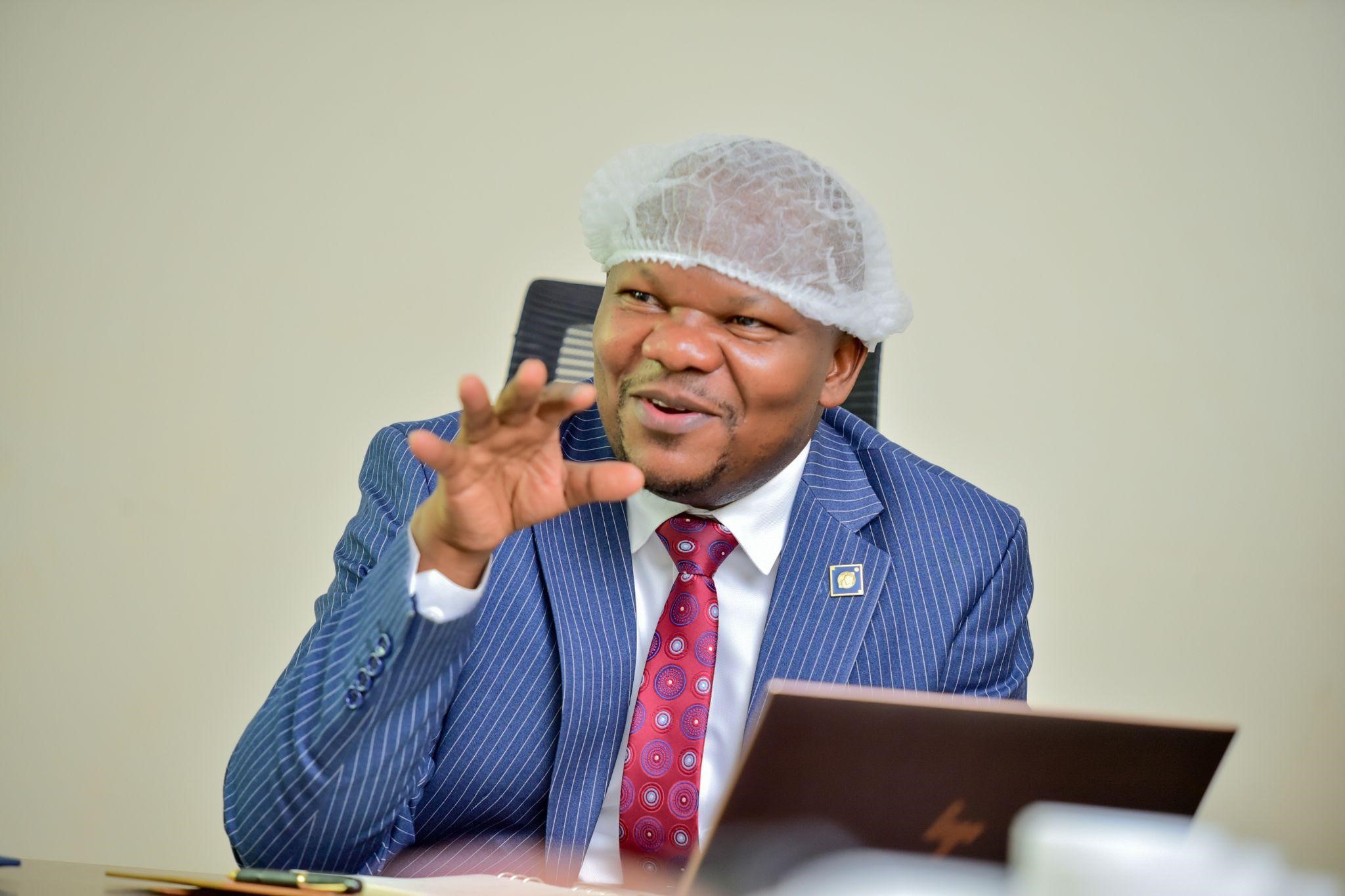
He emphasised the company’s commitment to quality assurance and consumer-centred research, noting that Psalms conducts surveys and gathers customer feedback to inform product development, supported by an internal microbiology and chemistry laboratory.
Dr. Denis Ngabirano noted that the company had only recently introduced two brands, “Afrikan Harvest for it’s health conscious clientele and Kruchables for it’s volume centric clientele.
“Afrikan Harvest has no additives, it is a brand for health-focused consumers,” he explained, while highlighting the differentiated positioning of their product lines. “Sumz is our premium brand, and Krunchables focuses on volume.”
Student-Centered Experiential Learning
A key focus of the meeting was structured experiential learning for students across disciplines. Potential areas of collaboration include internships, graduate trainee pathways, and hands-on exposure within Psalms’ incubation and production facilities.
The proposed engagement spans multiple fields, including environmental sciences, engineering, procurement and logistics, finance and accounting, quality control, production and manufacturing, human resource management, marketing, and international business.
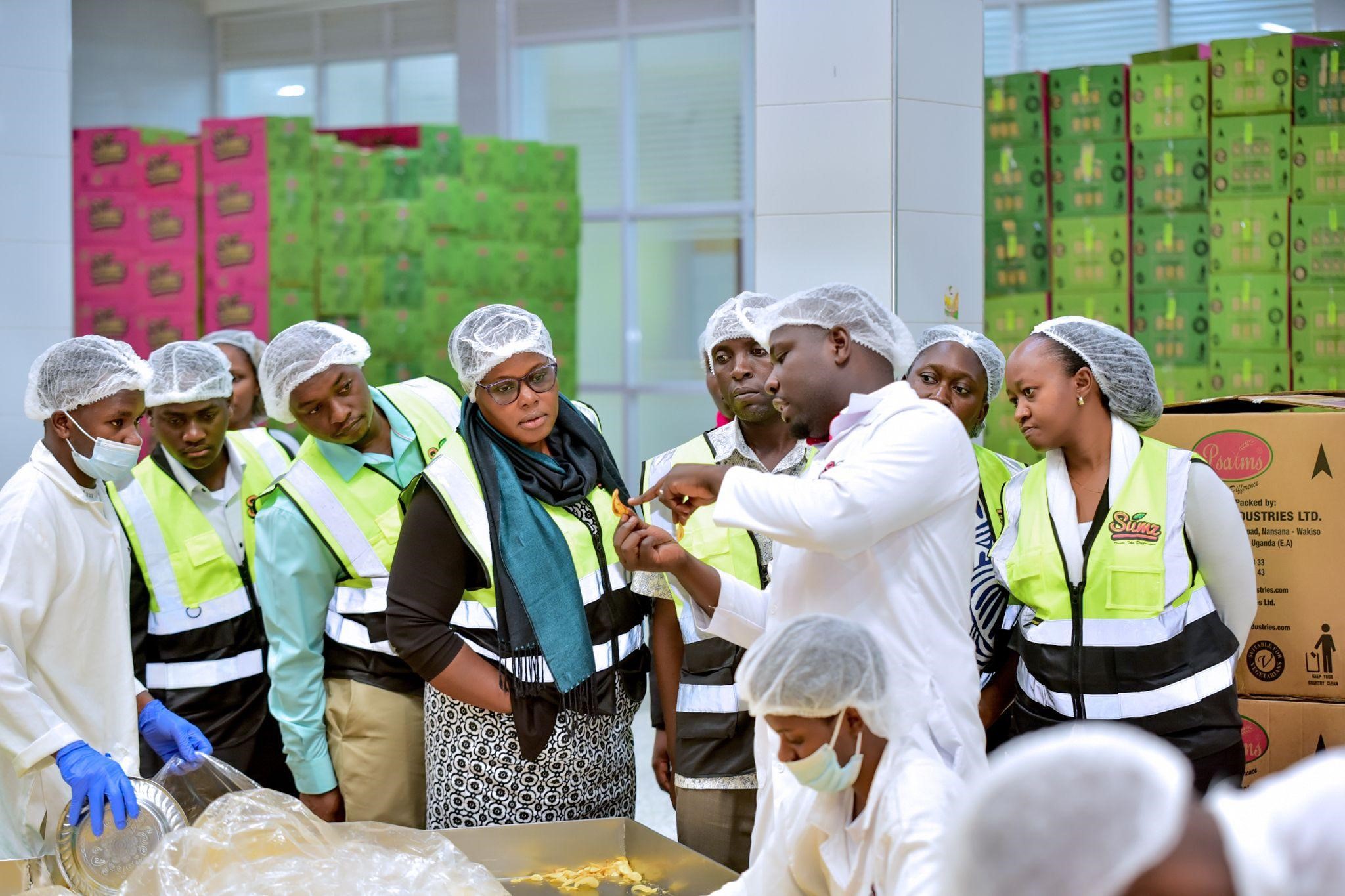
The partnership could provide students with direct exposure to real-time production systems, standard operating procedures (SOPs), and quality assurance frameworks, strengthening the practical relevance of their academic training.
Among the innovative ideas discussed was a potential competition involving students from the Fine Art and Industrial Design disciplines to redesign packaging for selected Sumz products. The proposal would allow top designs to be commercially adopted, creating a direct bridge between creativity, intellectual property development, and industrial application.
Research, Innovation and Commercialisation
Both institutions expressed interest in joint applied research initiatives, particularly in process optimisation, data analytics for manufacturing efficiency, product improvement, and sustainable production systems.
Opportunities were also discussed around collaborative research in machine design, crop development for snack processing, and factory energy solutions, areas that not only benefit Psalms but have broader implications for Uganda’s manufacturing sector.
The engagement further highlighted potential linkages with the University’s innovation and commercialisation structures, including the University Innovation Pod (UNIPOD), to support co-creation and scaling of student-led innovations.
Mr Awel Uwihanganye, Chief Advancement Officer at Makerere University, proposed strengthening the engagement through structured programming, including a planned collaboration between the University’s innovation Hub and the upcoming incubation Hub at Psalms Food Industries, particularly to support the commercialisation of research outcomes for both students and staff.
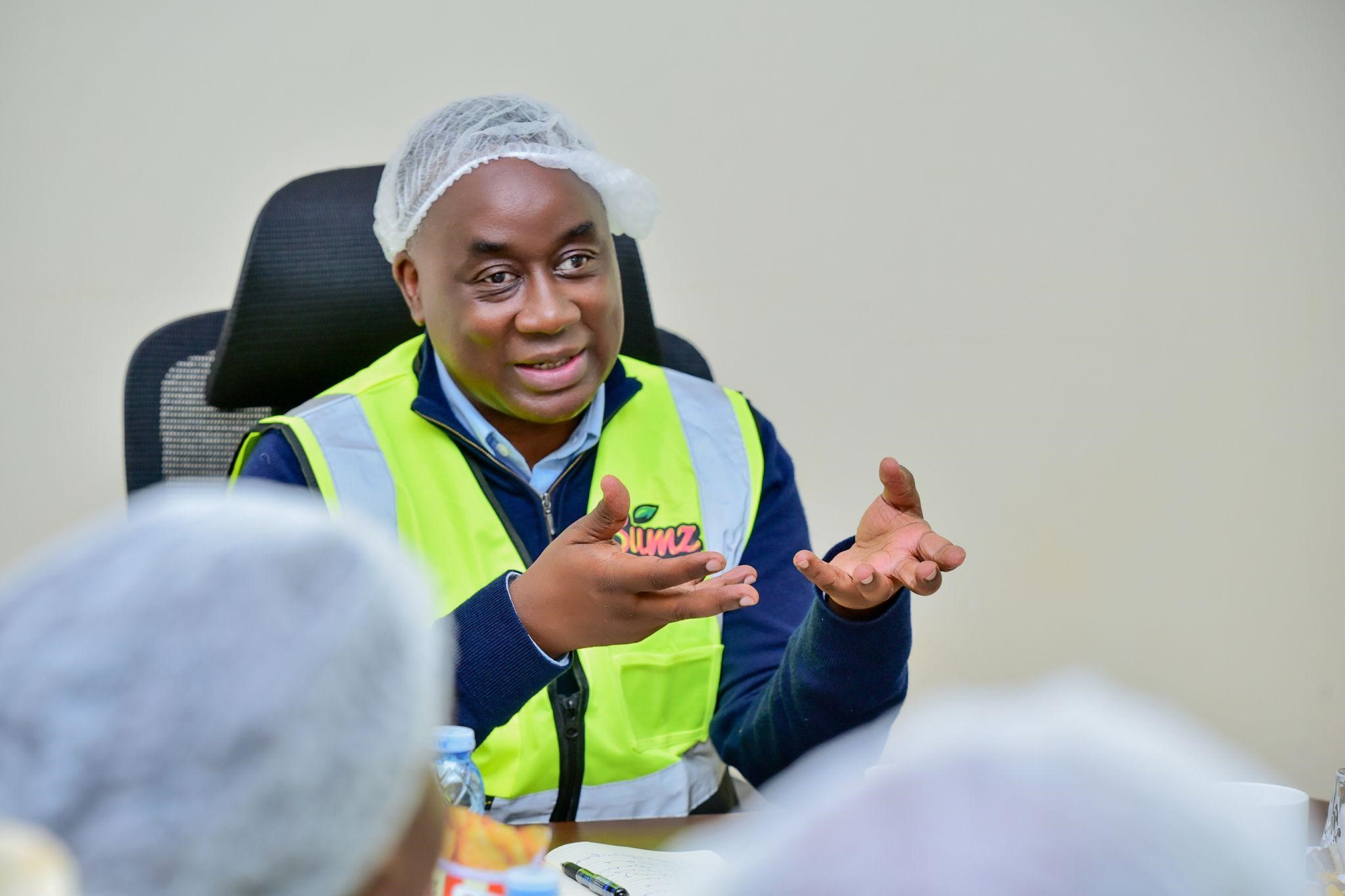
Curriculum Co-Creation and Staff Exchange
Beyond student placements, discussions also focused on co-developing academic content that responds more directly to industry needs, particularly within the manufacturing value chain.
Proposals included guest lectures by industry practitioners, staff exchange programmes to expose academic staff to factory operations, and tailored short courses for Psalms staff based on identified skills gaps.
Dr. Jude Mugarura, Head of the Department of Marketing and Management at COBAMS, emphasised the importance of embedding the partnership within academic programming. He proposed “internships for students in HR, marketing, international business, accounting and finance,” as well as staff exchanges to give University staff hands-on exposure to manufacturing operations.
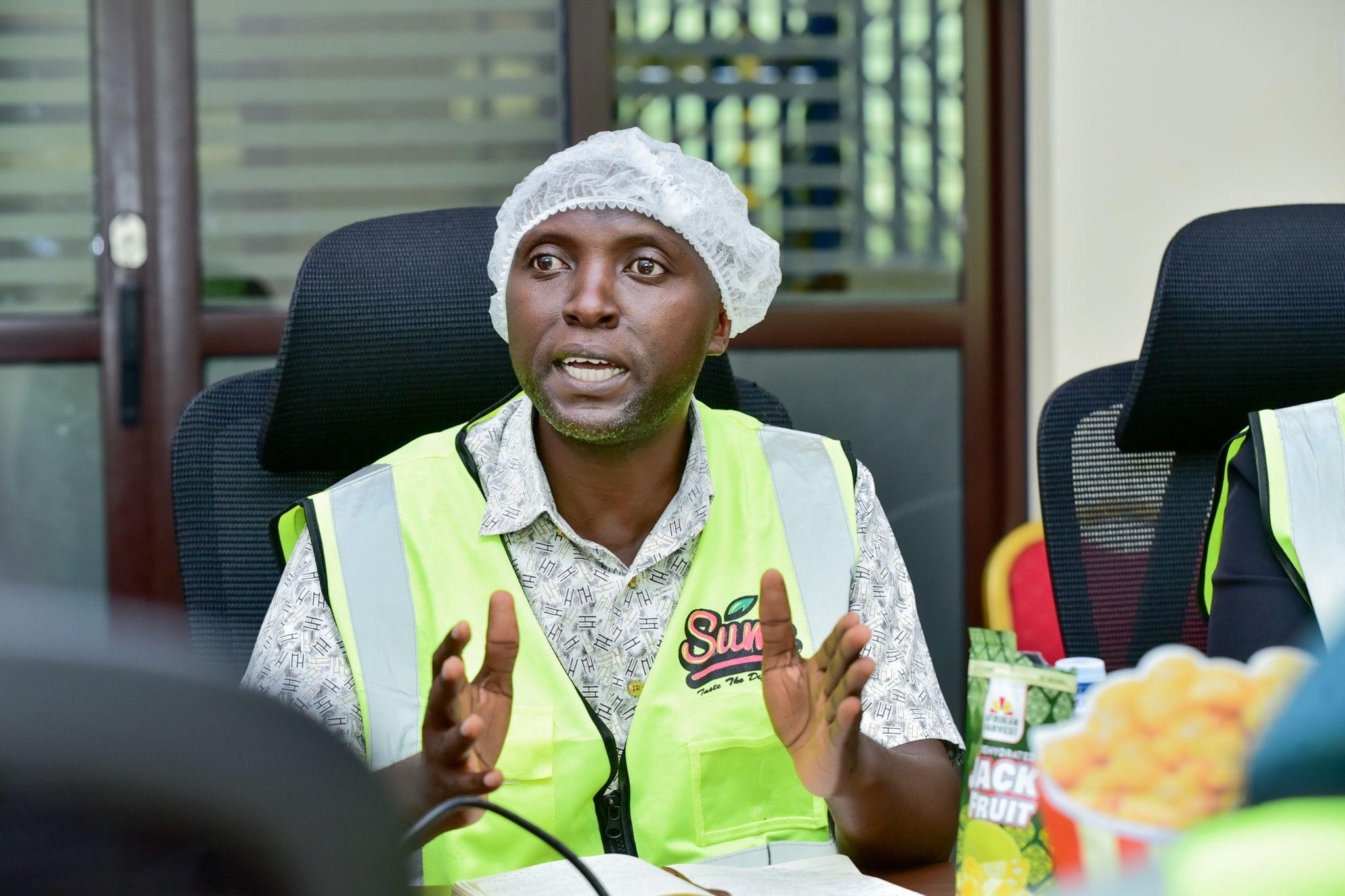
He further suggested specialised courses tailored to the factory’s needs and attachment of research students interested in manufacturing. Such collaboration would contribute to curriculum responsiveness and ensure that graduates are equipped with market-relevant competencies.
Strengthening University–Industry Linkages
The engagement reflects Makerere University’s continued commitment to strengthening partnerships that bridge knowledge generation and real-sector application.
Both institutions expressed a shared vision of building a structured, mutually beneficial collaboration that integrates research, innovation, skills development, and enterprise growth, positioning the University as a key knowledge partner in Uganda’s manufacturing transformation.
Discussions remain ongoing as both parties refine priority areas for formalisation.
Caroline Kainomugisha is the Communications Officer, Advancement Office.
General
Makerere University commemorates 13 transformative years of partnership with Mastercard Foundation
Published
2 days agoon
March 2, 2026
On Friday, 27th February 2026, Makerere University proudly celebrated 13 years of a significant partnership with the Mastercard Foundation, a prestigious independent organisation headquartered in Toronto, Canada. Since its inception in 2013 with the launch of the Scholars Program-currently headed by Prof. Justine Namaalwa, this collaboration has grown significantly, expanding to include two additional initiatives: The E-learning Initiative-headed by Prof. Paul Muyinda Birevu and the Africa Climate Collaborative-headed by Prof. Gorretie Nabanoga. This long-term partnership underscores the shared commitment to fostering education, innovation, and sustainability in Uganda and across Africa.
The colourful event coincided with the 76th Graduation Ceremony, during which Makerere University honoured Ms. Reeta Roy, the Founding President and CEO of the Mastercard Foundation, with an honorary Doctor of Laws.

In her commencement speech, Ms. Roy thanked Makerere University for considering a partnership with the Mastercard Foundation and for conferring upon her a prestigious honorary award.
“Mastercard Foundation is honoured to collaborate with this esteemed university, and I appreciate the recognition through this award. I am excited to be associated with Makerere University and look forward to actively embodying its values. Joining the broader community of alumni from this distinguished institution is a privilege, and I am eager to contribute to its legacy,” stated Ms. Roy.

During the reception in honour of Ms. Roy, the Chairperson of Makerere University Council, Dr. Lorna Magara, acknowledged the invaluable support from the Mastercard Foundation. She emphasised the profound impact of the Foundation’s various initiatives, particularly the scholarships for disadvantaged youth, which enable them to access higher education and opportunities that might have otherwise been beyond their reach.
“On behalf of the Makerere University Council and the broader University community, I extend our sincere gratitude to Mastercard Foundation for its commitment to collaborating with Makerere University in various endeavours, especially for providing scholarships to our underprivileged young people who would never have stepped inside a lecture room at the University.” Dr. Magara stated.

Dr. Magara, in a special way, thanked Ms. Roy for her transformative leadership and unwavering commitment to supporting young people in Africa, citing her efforts to ensure young people get their voices heard.
“As a university, our business is with young people. We are therefore committed to providing the environment and education that deliver meaningful pathways. We will provide an environment that ensures young people have a voice and agency to create meaningful change in society.” Dr. Magara pledged.

Dr. Magara further congratulated Ms. Roy on her honorary Doctor of Laws from Makerere University, noting that it is the university’s highest honour for individuals who have excelled in their careers.
“On behalf of the Makerere University community, I would like to extend my heartfelt congratulations on your honorary Doctor of Laws. This esteemed recognition represents the highest honour our institution can bestow on individuals who have demonstrated exceptional achievement and excellence across various facets of their career.” Dr. Magara remarked.
Prof. Justine Namaalwa, the Program Director of the Mastercard Foundation Scholars Program and the Coordinator for all Mastercard Foundation Initiatives at Makerere University, expressed her appreciation for the thirteen-year collaboration between Makerere University and the Mastercard Foundation. She highlighted that the partnership had yielded significant, impactful results.

“In 2013, Makerere University partnered with the Mastercard Foundation to educate the next generation of transformative African leaders who can positively impact their lives, their communities, and the economies of Africa. The partnership has had a significant impact. I thank the University Management and the Foundation team for this visionary collaboration,” remarked Prof. Namaalwa.
Prof. Namaalwa articulated that the partnership with the Mastercard Foundation is primarily focused on empowering young people as agents of change for transformational leadership in Africa. She presented compelling statistics demonstrating the positive impact of the scholars’ program, highlighting the success of individuals who have completed their education and their subsequent professional experiences after university graduation.

“This partnership focuses on young people, aiming to create positive change in their lives. To date, the Scholars Program has graduated 974 alumni, with 48% securing formal employment, 18% starting their own businesses, 8% participating in internships, and 5% pursuing further education. Overall, 72% of Scholar alumni are actively engaged in employment or entrepreneurship,” Prof. Namaalwa stated.
The colourful event showcased a dynamic array of activities that highlighted the entrepreneurial spirit of Scholars and alumni from the Mastercard Foundation at Makerere University. Attendees enjoyed a mini-exhibition featuring innovative products from these ventures.

A video documentary illustrated the positive impact of the three Mastercard Foundation initiatives. The event also featured inspiring poetry recitations by Scholars and a lively atmosphere of music and dance, creating an engaging and memorable experience for all participants.
The high-level event was attended by senior University officials, led by the Chairperson of Council, Dr. Lorna Magara; the Vice-Chancellor, Prof. Barnabas Nawangwe; the Vice-Chancellor, Academic Affairs, Prof. Sarah Ssali, Deputy, and the Ag. Deputy Vice-Chancellor, Finance and Administration Prof. Winston Tumps Ireeta. Mr Yusuf Kiranda, the University Secretary; and Prof. Buyinza Mukadasi, the Academic Registrar, Chancellor Emeritus-Prof. Ezra Suruma, former Chairperson of the Steering Committee of Mastercard Foundation Scholars Program-Prof. Umar Kakumba, and the Deputy Executive Secretary, RUFORUM, and former Program Coordinator of the Scholars Program at Makerere University-Dr. Florence Nakayiwa, among many other officials graced the function.

The event was also graced by a high-level delegation from the Mastercard Foundation, led by Ms. Reeta Roy, the Founding President of the Foundation, and included the Mastercard Foundation Teams from the Country offices in Kigali, Nairobi, and Kampala; the Program partners; the Mentors, Scholars and alumni; as well as the Program staff of the three Mastercard Foundation Initiatives at Makerere University.
At the end of the event, Makerere University honoured Ms. Reeta Roy with University memorabilia, including a pencil-drawn portrait, a pencil-drawn photo of the Ivory Tower, and other Ugandan crafts. Ms. Roy cut a graduation cake together with the 10 graduates of the 76th graduation ceremony from the Mastercard Foundation Scholars Program.
Bernard Buteera is the Principal Public Relations Officer for the Mastercard Foundation Scholars Program at Makerere University.

It is with great pleasure that I welcome you to this edition of Mak News Magazine, a publication that continues to chronicle Makerere University’s journey as a centre of academic excellence, innovation, and societal transformation.
The stories featured in this issue vividly demonstrate Makerere’s unwavering commitment to addressing national, regional, and global challenges through research, partnerships, and people-centred solutions. They reflect a university that is deeply engaged with society, one that applies knowledge not only to advance scholarship, but also to improve lives.
A recurring theme in this edition is innovation for resilience and inclusion. From the College of Agricultural and Environmental Sciences’ Healthy Soy Initiative combating child malnutrition amid climate change, to the cutting-edge work of CEDAT’s Team Green Minds integrating IoT into agriculture, Makerere continues to harness science and technology to respond to pressing development needs. Equally inspiring is the College of Natural Sciences’ success in securing international funding to scale up fish processing technologies, with a deliberate focus on empowering women and strengthening livelihoods.
This issue also highlights Makerere’s growing role in advancing health and wellbeing. The launch of the Early Intervention Psychiatry Services Clinic at Makerere University Hospital marks an important step in strengthening mental health services, while the Hospital’s transformation from a modest sickbay into a centre of excellence stands as a testament to decades of strategic investment, dedication, and service to the nation.
Our commitment to education access and global engagement is equally evident. Strategic partnerships, such as that between the College of Education and External Studies and the Uganda Vocational and Technical Assessment Board, are expanding pathways to quality education. The establishment of the first-ever United States Studies Centre in the Great Lakes Region positions Makerere as a hub for dialogue, research, and policy engagement on global affairs. We also celebrate our vibrant international community, with graduates drawn from 67 nationalities—affirming Makerere’s status as a truly global university.
This edition further showcases initiatives that ensure long-term institutional sustainability, including the launch of the CoCIS Endowment Fund, infrastructure developments such as the modern hostel at Buyana Farm, and transformative programmes supported by the Mastercard Foundation that continue to empower young people across the continent.
As you read through these pages, I invite you to reflect on the collective effort of our students, staff, alumni, partners, and supporters whose contributions make these achievements possible. Together, we continue to shape Makerere University as a place where knowledge serves humanity.
I wish you an engaging and inspiring read.
Prof. Barnabas Nawangwe
VICE CHANCELLOR
Trending
-

 Humanities & Social Sciences1 week ago
Humanities & Social Sciences1 week agoMeet Najjuka Whitney, The Girl Who Missed Law and Found Her Voice
-

 General1 week ago
General1 week ago76th Graduation Highlights
-

 Agriculture & Environment2 weeks ago
Agriculture & Environment2 weeks agoUganda Martyrs Namugongo Students Turn Organic Waste into Soap in an Innovative School Project on Sustainable Waste Management
-

 Health2 weeks ago
Health2 weeks agoMakerere University School of Public Health Graduates First Cohort of Cost-Effectiveness Analysis Short Course
-

 Agriculture & Environment1 week ago
Agriculture & Environment1 week agoCAES Presents Overall Best Performing Student in the Sciences & a Record 28 PhDs at the 76th Graduation Ceremony
